When I got the itch to leave my 2-month stay in Bali to explore somewhere with a few less juice bars and volcano-screaming spiritual gurus, my curiosity nudged me toward Taiwan. It’s sometimes overlooked by tourists in Asia, and I didn’t have a plan—no Pinterest board, must eat, or must do list.
But after a few days in Taipei eating my weight in soup dumplings (which I 1000% recommend as one of your top priorities in Taiwan), strolling through lively night markets, sweating in temples, and drinking draft beer inside 7-Eleven like a local delinquent, I needed something green. Something that didn’t involve crowds or Google Maps.
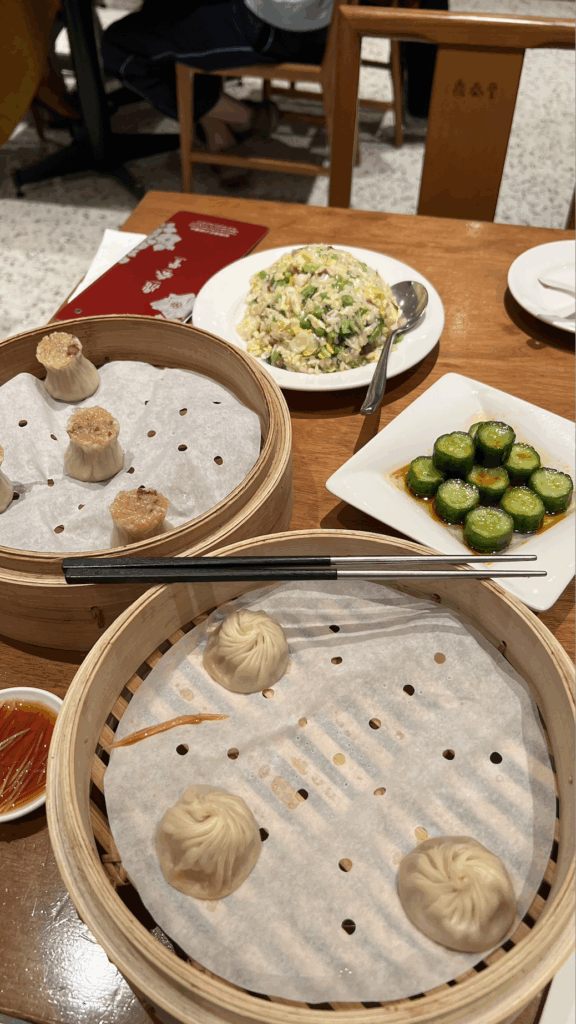
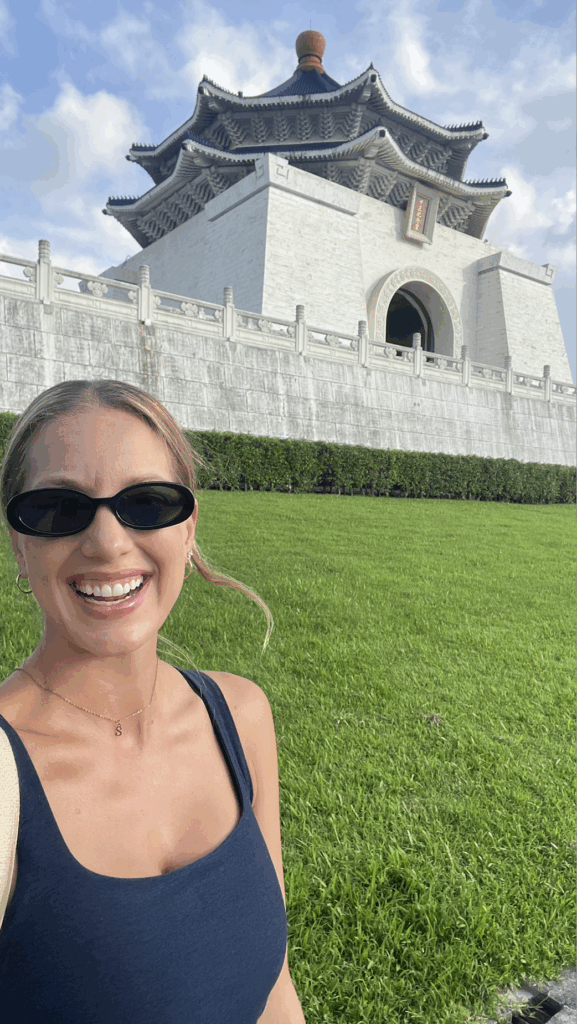
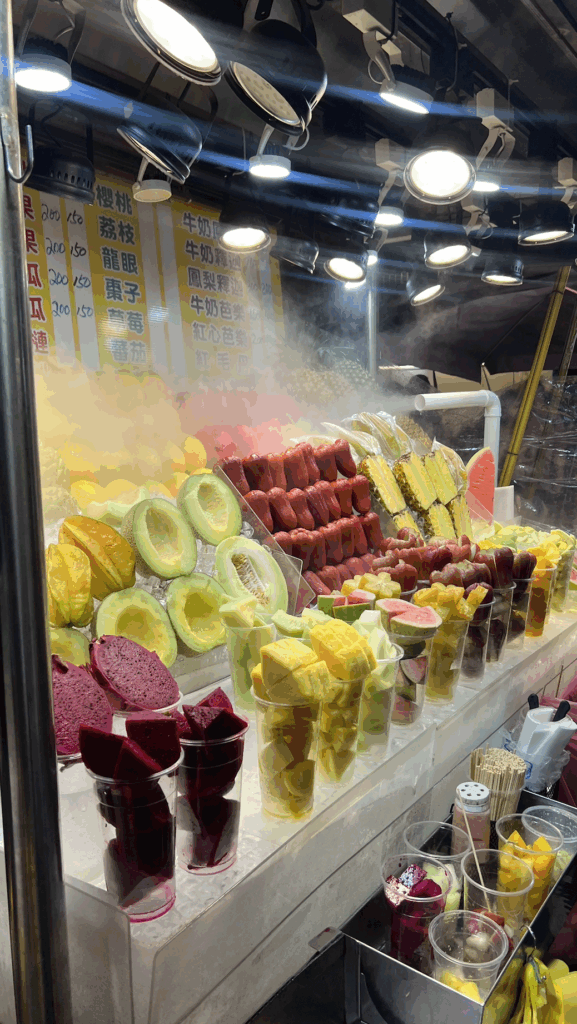
The famous “old town” of Jiufen highlighted on every Taipei itinerary seemed too crowded to be relaxing, with tea house reservations fully booked weeks in advanced and hordes of people descending on the once peaceful village like a wildebeest stampede (think Kyoto, Japan—or Disney’s The Lion King).
Instead, I booked a half-day trip to Thousand Island Lake and the Pinglin tea region with a vague hope for fresh air. I’m not much of a tea drinker—give me coffee or give me death—but it sounded like an offbeat way to get outside and learn a little about Taiwanese culture.
What I didn’t expect was that within an hour of leaving the city, I’d be standing among thousands of rows of tropical tea fields nestled in the emerald mountains, lakes, and lazily swaying palm trees. Pair stunning views, intimate tea rituals with an ancient tea sommelier, and a quiet tea shop on a lantern-lit street, and trust me—you won’t miss the chaos of Jiufen.
Best short day trip from Taipei for nature
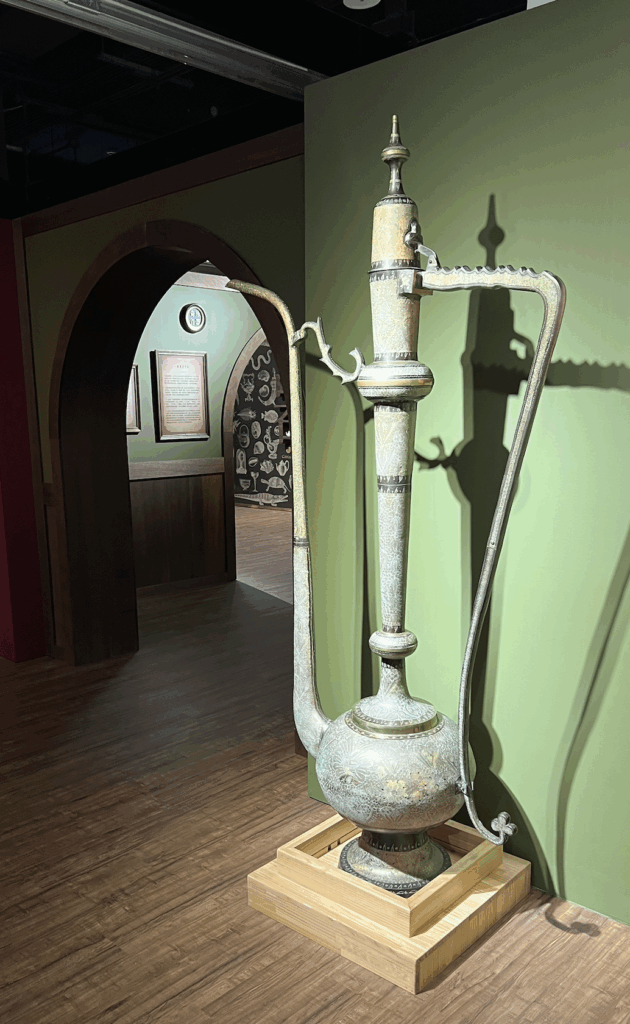
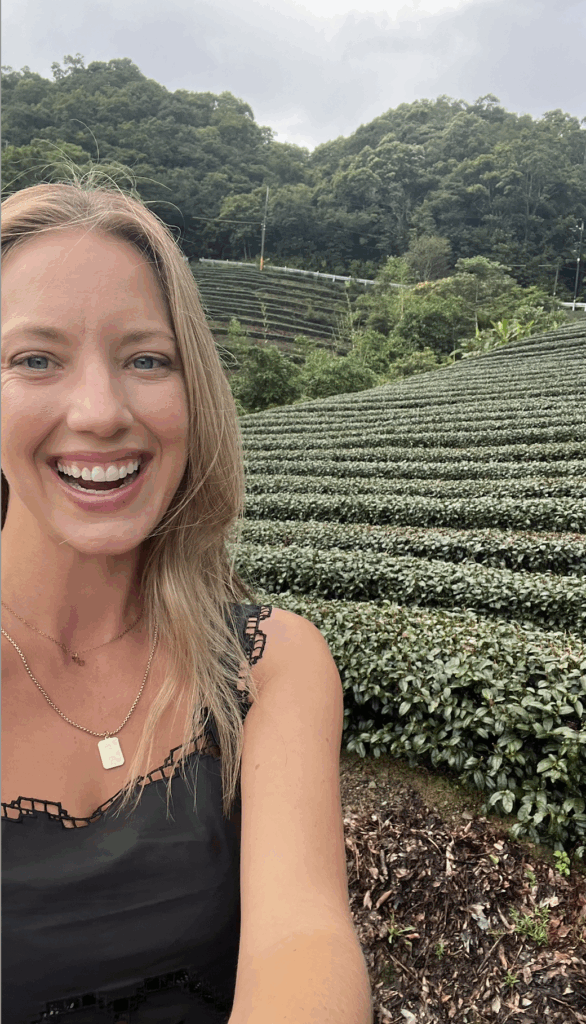
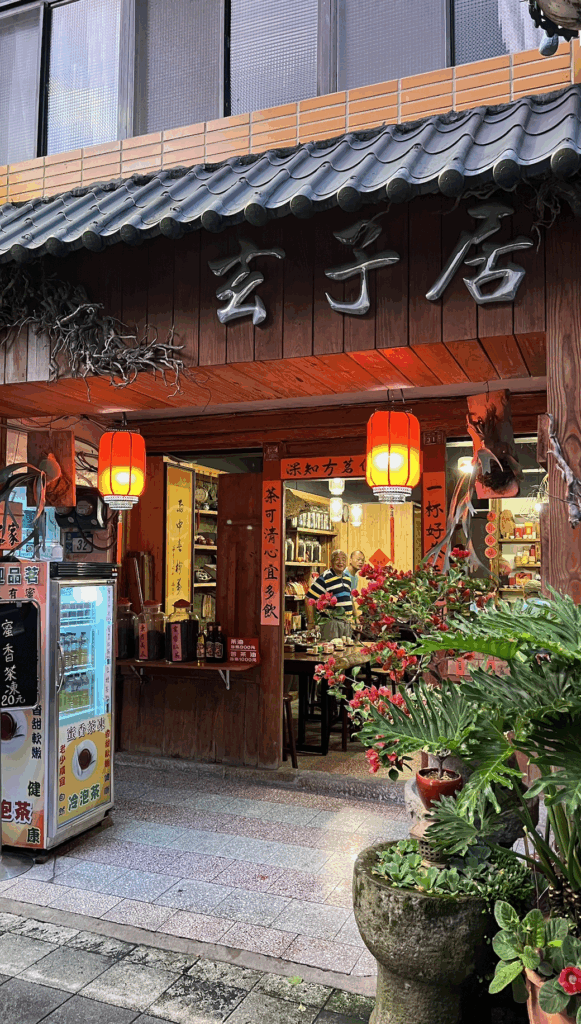
Thousand Island Lake and the Pinglin Tea Plantation
After you join a local guide near the metro, the air-conditioned drive out of Taipei to Thousand Island Lake (or Qiandao Lake, 千岛湖/千島湖) is an hour of winding roads, misty hills, and questionable cell reception.
The first stop is Thousand Island Lake, which looks like a scene from Jurassic Park with dozens of tiny green islets floating in mirror-still water and mountains folding into each other in misty layers of the brightest jade and deep green. I’m a little embarrassed to admit it, but I had no clue that Taiwan was tropical.
After some time viewing the lake from different angles, we explored Bagua Tea Garden, where the tea bushes are planted in the shape of the eight Taoist trigrams. If that means nothing to you, don’t worry—I also didn’t fully get it. Even if you’re not spiritually aligned, it’s worth it for the views of the mountains and zen alone.
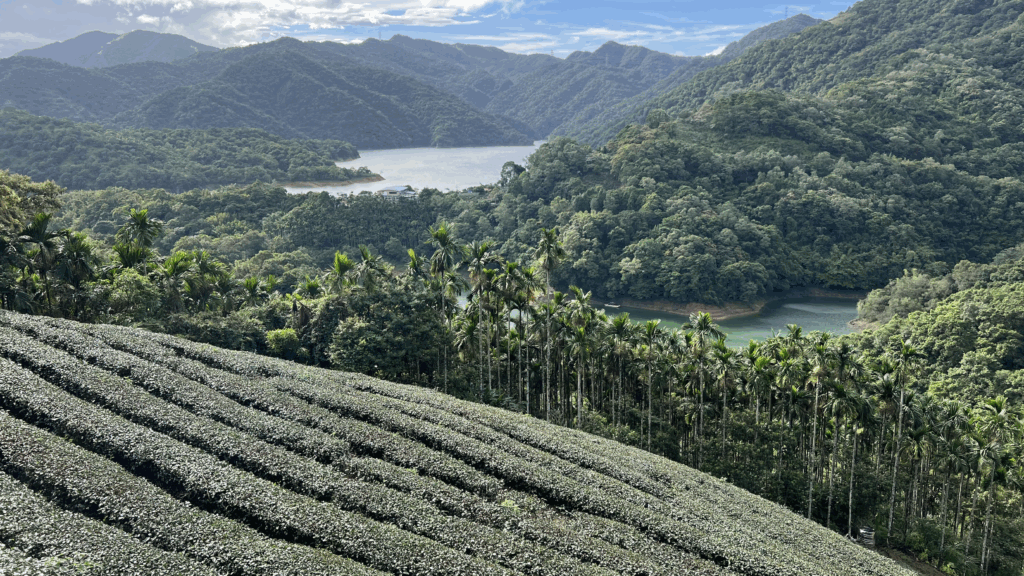
Pinglin Tea Museum
Next we poked around the Pinglin Tea Museum. It’s not flashy, and it’s actually the only place in Taiwan I saw a squatty potty.
Otherwise, it’s a modest courtyard with wooden beams and a koi pond encircled by a small building with exhibits on everything from historical fermentation to tea wars during the Qing dynasty. It’s the kind of place where you might just be happy to escape the humidity, but you’ll walk out an hour later ready to fight strangers on the internet about proper oolong tea steeping temperatures.
Drinking tea with a sommelier on Pinglin Old Street
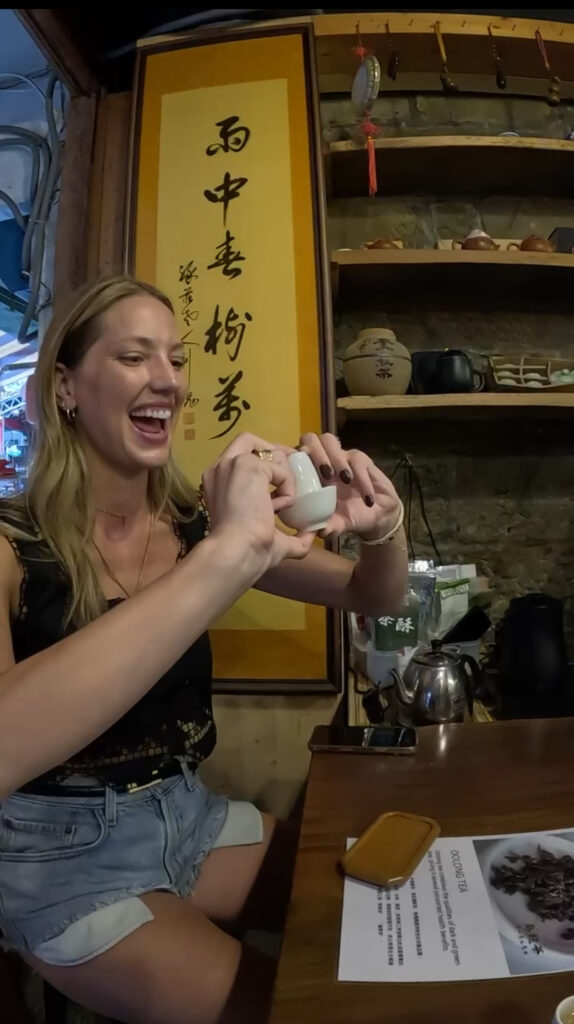
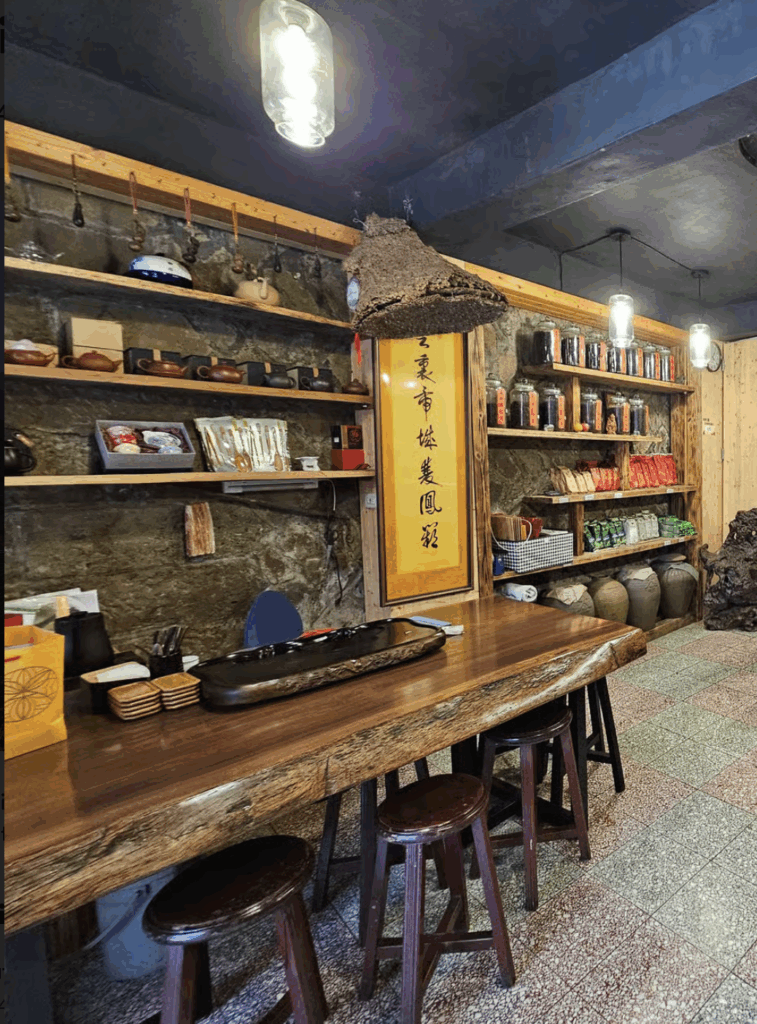
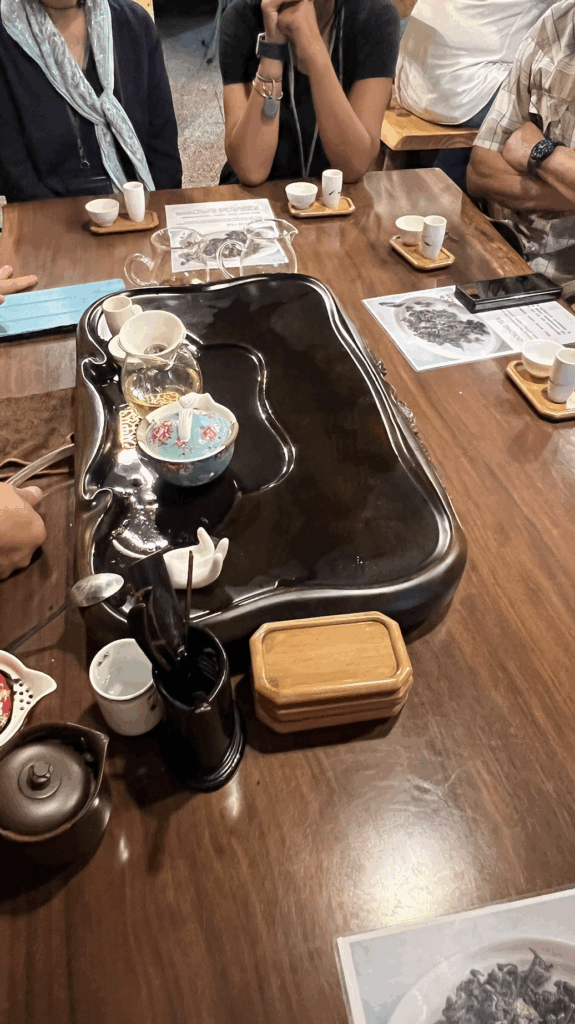
Our last stop—and my favorite part of the whole experience—was on Pinglin Old Street, a quiet alley nestled in the mountains and lined with little local tea shops. The Japanese colonial architecture, leftover from the Japanese empire’s occupation of Taiwan ending in 1945, transports you back in time with narrow facades, tiled roofs, and curved wood trim.
This is where we did a sit down tasting with the tea sommelier—complete with pretty tea sets, little snacks, and great storytelling on everything from tasting notes to soil to cultural background.
First, the sommelier brewed Pouchong tea, prized for its floral notes. But what makes it so special is where it’s grown: high up in the misty mountains of northern Taiwan at elevations between 400 and 800 meters above sea level, the cooler air slows the tea leaves’ growth while the steady mountain mists protect them from harsh sun. This is how the leaves develop the concentrated natural sugars that give them their signature sweet, orchid-like fragrance.
We also tried Oriental Beauty, which—fun fact—is made from tea leaves bitten by grasshoppers. Their nibbling triggers the plant to release terpenes, which gives the tea a honey-like flavor.
Tour logistics and know-before-you-go guide
- Duration: About 6 hours. You’ll be back in the city by mid-afternoon.
- Group size: Small—mine had ~8 people.
- Transport: Clean van, air conditioning
- Cost: Book the experience here for about $50 USD per person. It covers everything: the guide, museum, transport, and the tea tasting!
- Bring water, wear walking shoes, and if you’re someone who “doesn’t really like tea,” I say go for it! Drinks have been a formative part of world history and culture since our beer-drinking Mesopotamia days, and tea is no less important in human history. If you’re interested in more on this, check out one of my favorite books, “A History of the World in 6 Glasses.”
I hope this travel blog helped you with choosing the best short day trip from Taipei! If you’re like me and want to scream when you’re stuck in a city for too long, this one’s for you. Enjoy it!
Like this blog? Check out my other Asia content, and let me know if you have any questions in the comments!
This blog may contain affiliate links, which means that at no cost to you, I may earn a small commission of any products sold. I only feature products that I believe in and use. Your support means the world to me and allows me to host this website!
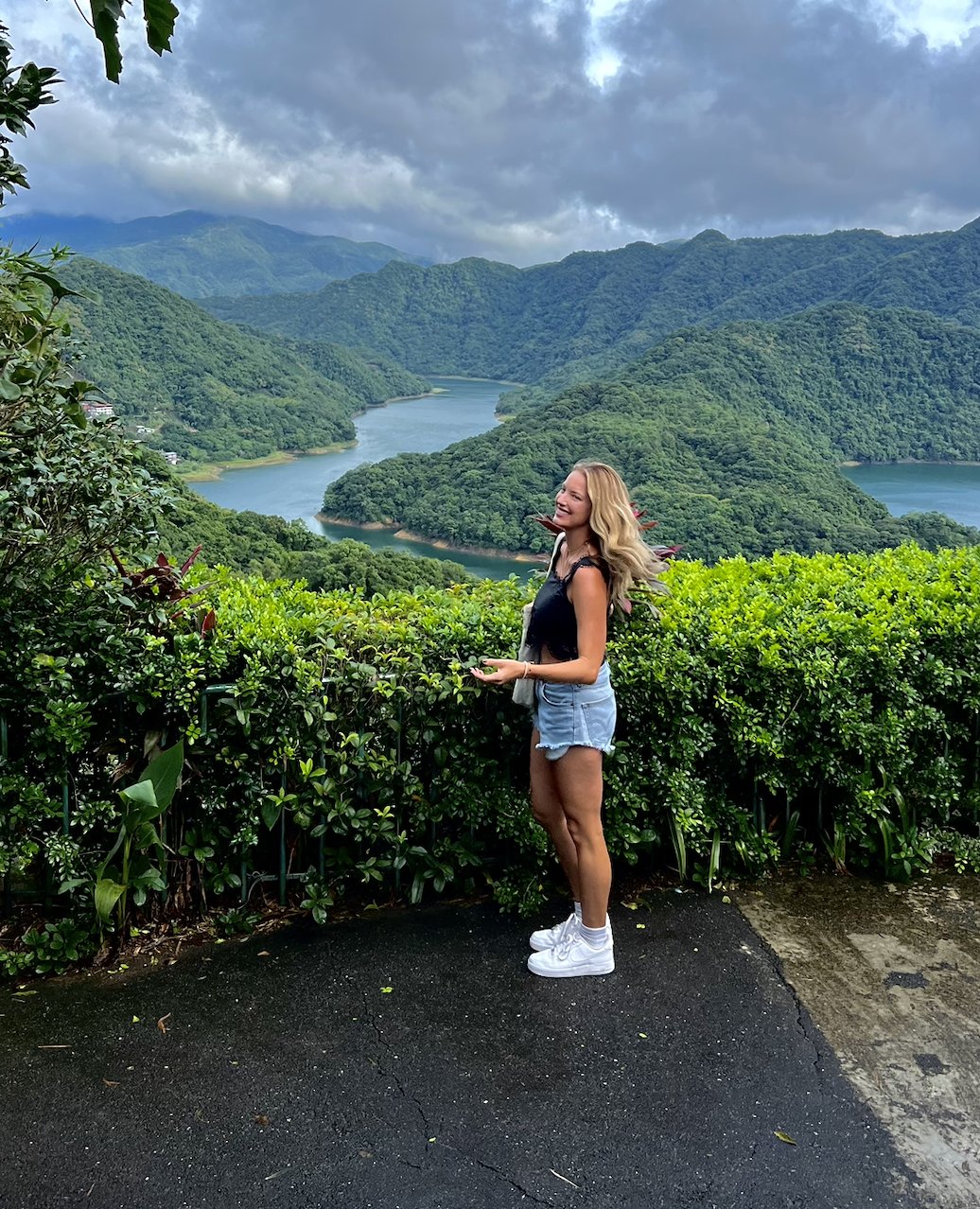
LEAVE A COMMENT